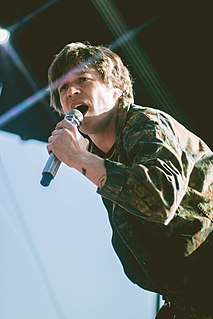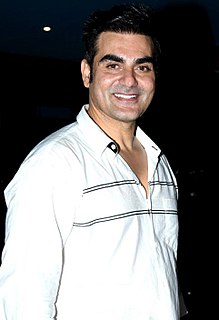A Quote by Paul Dini
As a writer, every time I create a character, I try to go for something to captivate the audience in some way. It's also an extension of how the audience would like to see themselves.
Related Quotes
Making a show is also economics. Because the irony is, or the shame of it is, you cannot create a show instantaneously. It needs to be massaged. You need to see who is relating to who. How is it working with the audience? You need to give it a chance for the audience to find it, because there are so many outlets. And the audience doesn't know where to go.
I gravitate towards anything that feels challenging to me, that feels like it's gonna be saying something a bit different and new to the audience, and anything that moves me. I do movies that I would want to see, so I don't necessarily gravitate towards any genre in particular. I just try and do the best work I can and also try to keep the audience guessing.
I feel like, when the audience connects with something, they enjoy the experience so much that they want other people to go have it. They're like, "Don't talk about it. Don't tell. Just go!" It's a nice feeling to have people coming around it that way, protecting the ideas in it, so that everyone can see it for themselves.
When I'm writing, I try to have the mask of my character on as I'm walking through the world. When I'm not at my desk, the rest of the time, I try to stay in that character and see the world the way that character would It's almost like method acting in a way — keeping the character close the way the actor keeps a script close and always tries to be in character.
I try to be after something that is deeply reverberating inside of our souls, some deep echo from - even from prehistory. What makes us humans? How do we communicate? Where are we going at this moment? Something for an audience where they can step outside of themselves, where they can be almost like in ecstasy of truth, some sort of deep illumination. And that's what I'm trying in documentaries and in feature films.
It's basically how I choose movie roles. Would I like to see this movie? Is this movie important? Why would I do this? And Headhunters is a movie that I would like to see in the cinema. And when it's sold to 50 countries or whatever, for me it's a great deal. I make movies for an audience so if that audience grows, I feel really honoured and thankful for it.
Many times - especially when I'm playing an historical character - I want to be really on target with how I create that character and really nuanced with who that human being might be. But I don't want to lose the likeness of me or the depth of my own personality. So meditation and my spirituality has helped me to realize that, yes, I want to get out of the way but I also want the ability to hold on to what the audience likes of what they see of me.






































